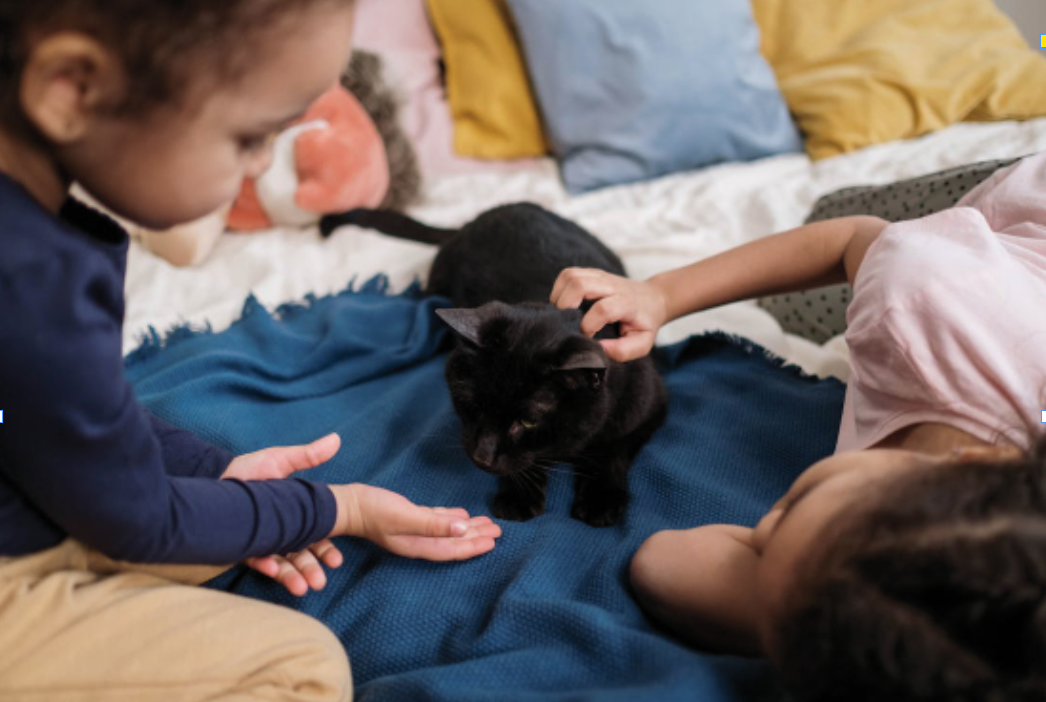Cats make great companions. However, some homes are small, and some families may not have time to care for a dog or may include members who are allergic to dogs — making cats a common choice.
ADULT OR KITTEN?
If you are considering adopting a cat, it is a good idea to choose an adult cat. Young children tend to be very active and may be too rough with fragile kittens, resulting in injuries to the kitty and a fearful, skittish adult cat. Similarly, young kittens have particularly sharp teeth and claws, which can accidentally injure delicate young children. Cats over 2 or 3 years old are best for kids under age 5 or 6.
CHOOSING A CAT
Animal shelters are great places to find a wide variety of adult cats.
First, visit a shelter and meet several cats so you can get to know a variety of feline personalities.
Once you have selected a few cats you like, the next step is to have your child meet the cats (you may want to do this in more than one shelter visit).
INTRODUCTIONS
Demonstrate to your child how to appropriately meet a cat:
Hold out one finger and allow the cat to sniff it. If she tries to rub your finger, that is a great sign! If she backs away or hisses, she is not comfortable. Never force a cat into a situation she isn’t comfortable with — this could spell disaster for the cat and the human.
Scratch interested kitties all over the head, neck and chin, and then along her back. If she remains relaxed and interested, gently place one hand under her belly and slowly pick up her front feet off the floor.
If she remains relaxed, gently continue to pick her up as your other hand supports her back legs. Hold her securely against your body as you support her feet and continue scratching her head.
Have your child sit quietly on the floor or in a chair as you gently place the cat in his or her lap. Encourage your child to scratch the cat’s head and back gently.
MORE TIPS FOR MEETING CATS
If the cat becomes uncomfortable or demonstrates “unhappy” body language at any time, gently but quickly set her down or allow her to get down on her own.
Most cats do not like to be held for long periods, so do not expect her to tolerate it.
Many cats do not like to have their bellies rubbed, so encourage children to avoid this.
Do not allow children to grab at, squeeze or carry cats like footballs — cats can become injured or scared, which is dangerous for everyone involved.
Unlike a dog, when a cat is wagging her tail, this may indicate that she is irritated.
If a cat flattens her ears, she is unhappy and may strikeout.




